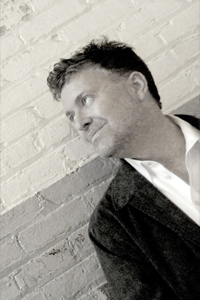"I try to really personalize [my teaching] in terms of what the individual student needs. Everybody’s kind of coming from a different place and different set of abilities, younger or older, so you really try to tap into what’s going to help them most right now, whether it’s technique or feel or time issues or interpretation issues. I do try and work on people, on their sound, to get it as free and unencumbered as possible, so I have a bunch of exercises we work on and different philosophies pulled from different teachers and resources over the years. It’s a combination of things."
"I’d like students to feel like they know themselves better as a musician and have them feel a bit more individual in what they do, and I really try to help people find what’s special about them and what they can contribute as opposed to trying to emulate a bunch of other people. What are you going to bring to the party? You’re singing a song that’s been done by a million people, what’s going to make it yours? Whether that means a big difference or little shifts in interpreting the tune, it’s trying to find something that makes it theirs."
"I think Berklee is more difficult than people expect when they first get here; it’s more demanding and more challenging. I think it’s a well-rounded curriculum, and there are lots of opportunities because with each semester you get the chance to try different things. Between that and all the resources here, it’s kind of incredible."

